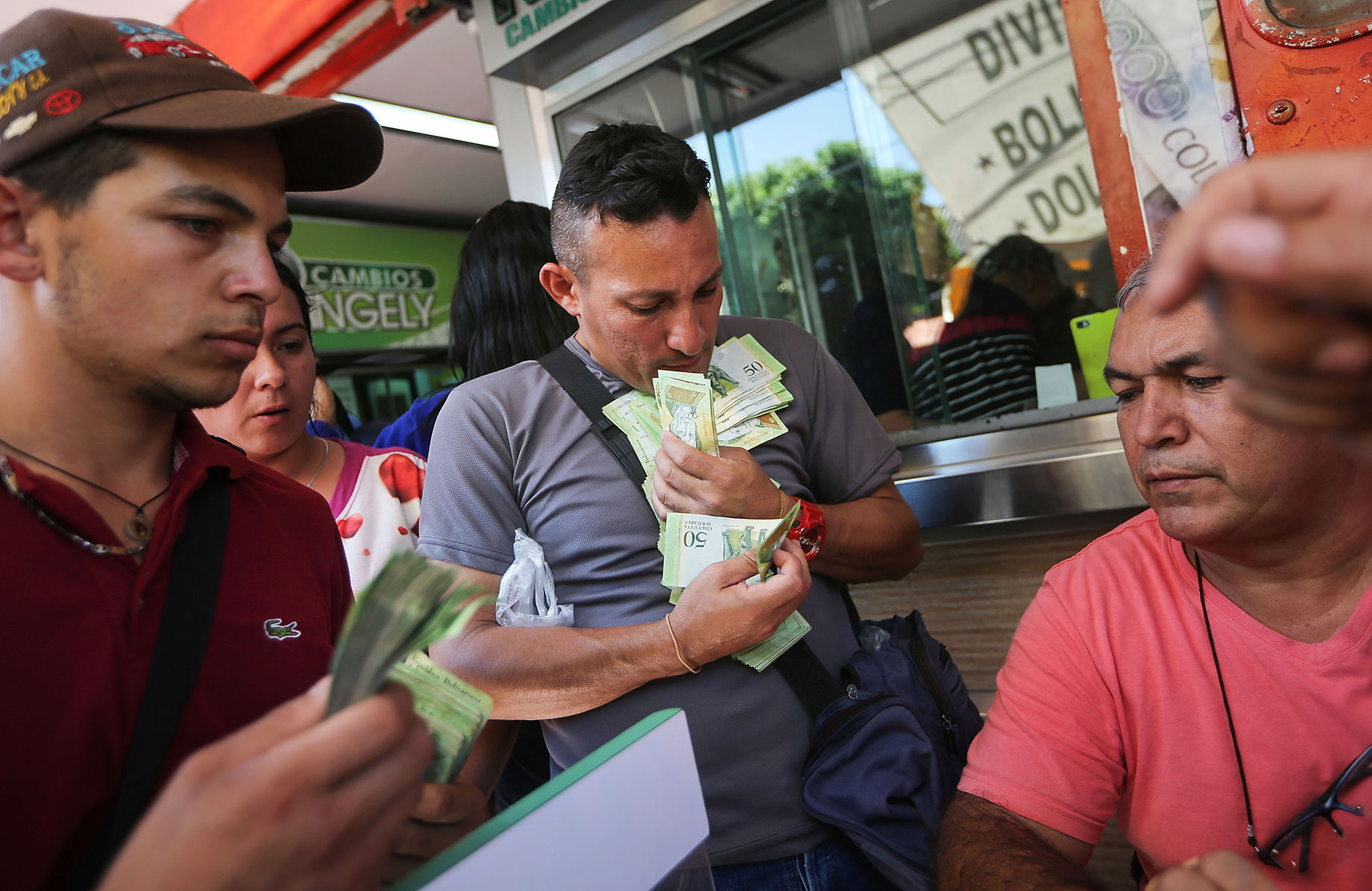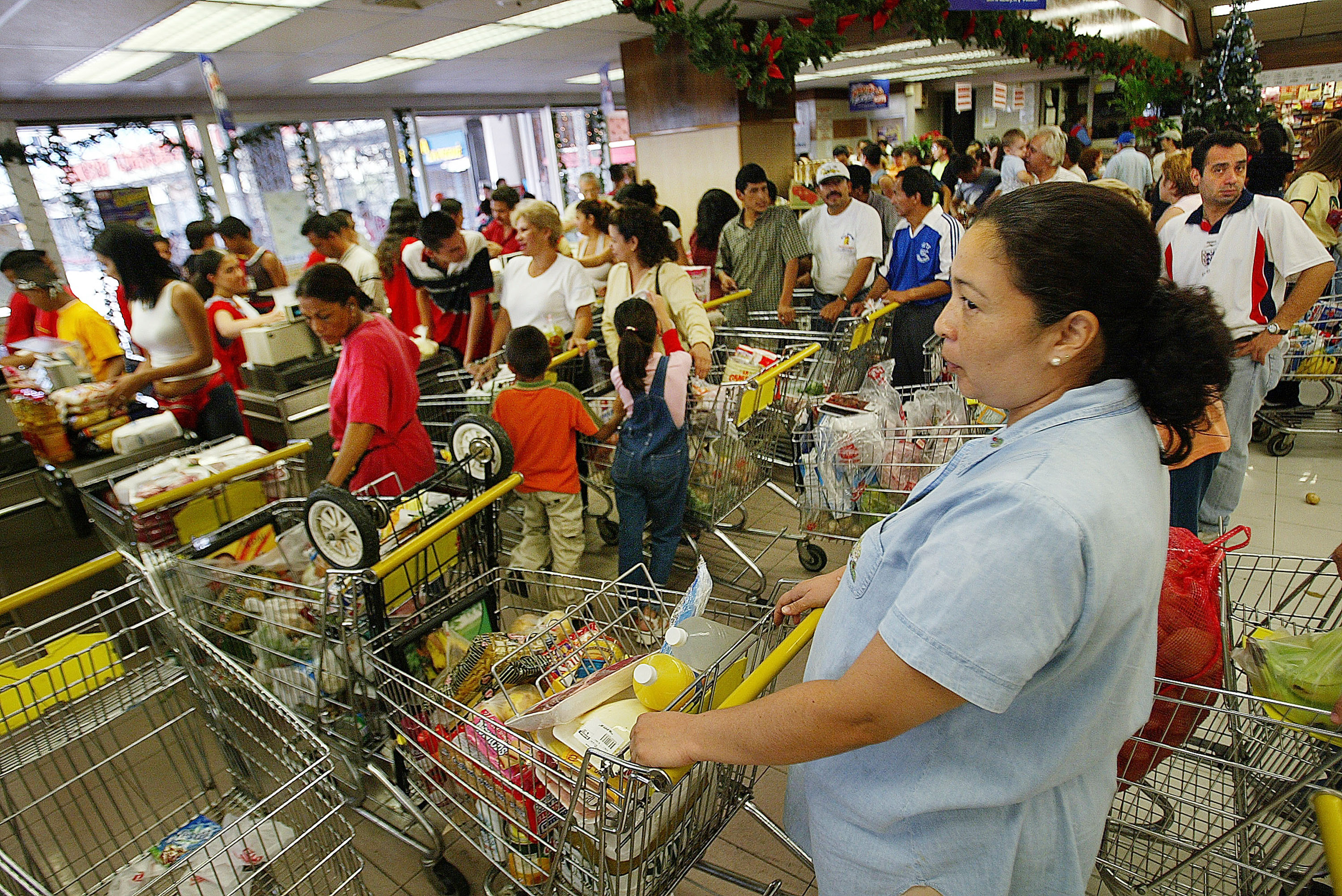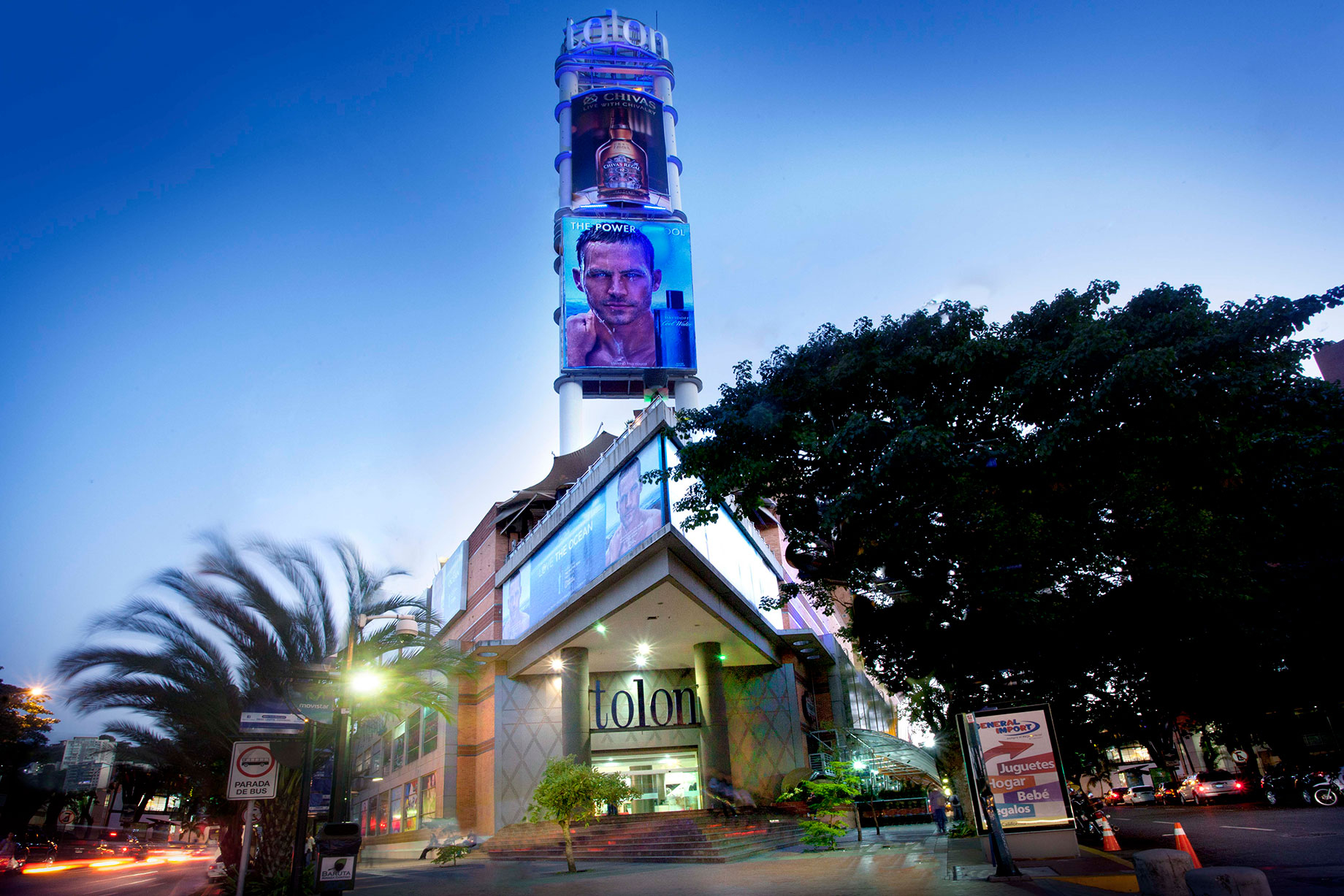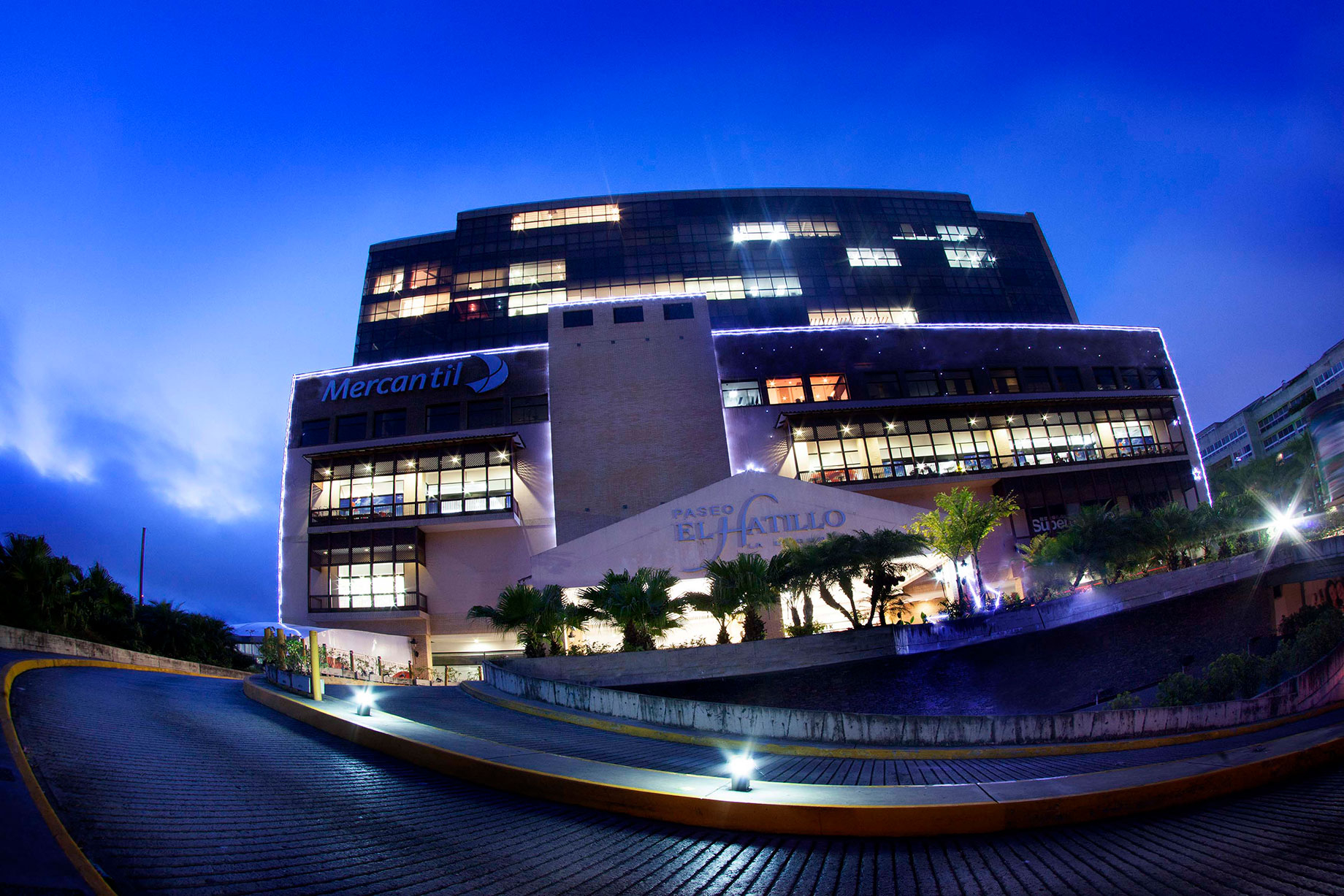Venezuela's 210 retail centers and their tenants are as battered by the country’s economic and political upheaval as the population is. Yet, like the customers they serve, they are hanging on and are providing vital relief to the people.
“Since day one, our malls were conceived as a destination for entertainment, service and shopping, which explains why they continue to draw consumers, despite the political crisis, hyperinflation and [the] shortage of basic goods,” said Claudia Itriago, director of Venezuelan trade group Cámara Venezolana de Centros Comerciales, Comerciants y Afines (known as CAVECECO). “There is always the need to go to a drugstore, supermarket [or] bank, or to eat and watch a play or a movie — and malls offer this in a nice environment and with security.”
No official data are available, but sources interviewed for this article estimate that retail sales are down at least 70 percent since 2017. As the world has already seen, the economy in this country of nearly 32 million has been reeling. GDP contracted by 37 percent between 2013 and 2017, aggravated by plunging oil prices. Annual inflation hit 1.3 million percent for the 12 months ended last November. Some 3 million Venezuelans have left the country since 2014.

Annual inflation reached 1.3 million percent last year
Citizens and businesses alike contend with frequent outages because of the deteriorated power grid. A nationwide power outage in March lasted nearly a week. A mall in the city of Maracaibo, Sambil Maracaibo, was looted.
Given all this upheaval, it might seem a surprise that CAVECECO reports an average mall vacancy rate of only 10 percent. “It seems low, but it is an alarming rate, since we have centers that in the past never had an unoccupied shop,” said Itriago.
“Venezuelan malls are operating at three-quarters of capacity while waiting for the resolution of the economic and political situation,” said Freddy Cohen, president of CAVECECO and the general director of Constructora Sambil, which owns seven malls in Venezuela. A CAVECECO study shows that the number of mall visitors dropped by 30 percent in 2017 and by another 30 percent last year. Stores have limited stocks and are manned by fewer employees.
And yet there are still some customers.
“Venezuelan malls are operating at three-quarters of capacity while waiting for the resolution of the economic and political situation”
“We must continue living, and that includes getting married [and] celebrating birthdays and anniversaries, all of which involve shopping for gifts and fashion,” Cohen said.
One retailer that has not given up on Venezuela is Zara’s Venezuelan franchisee, which reopened in Sambil Barquisimeto after shutting down four years ago on difficulties with accessing foreign currency to purchase imports, says Cohen.
Expansions or ground-up retail real estate developments are almost nil, though, executives say. Centro Comercial El Recreo de La Castellana, part of a mixed-use project in an affluent Caracas neighborhood, has yet to open after Inmobiliaria N.S.M. initiated construction in 2015.
The $60 million-plus Centro Comercial Parque Cerro Verde, which opened at the end of 2016 in Caracas, has only about a dozen of its 480 stores open now.

Venezuelans are enduring chronic food and medicine shortages
On top of the hyperinflation and the frequent blackouts, landlords contend with price and rent controls, security issues, constant audits and the “the government's voracious fiscal appetite,” according to Lerryns Pérez, CEO of Grupo Iro, which owns the 250-shop Centro Comercial Las Trinitarias, in Barquisimeto, and the 100-store Centro Comercial La Granja, in Valencia.
Grupo Iro's two malls have generators that let them operate during power outages. Other emergency measures include operating hours that are reduced and rents that are not fixed but rather based on a percentage of sales. Moreover, both malls continue to hold events to help maintain a flow of visitors. “Our vacancy rate is less than 15 percent, thanks to steps taken to support our tenants and continue open,” said Pérez. Nevertheless, sales are only one-fifth of what they were two years ago, and the volume of visitors is now less than half what it was before, Pérez says.
Malls and retailers have adapted to the crisis in other ways too. In some malls, retailers operate mini stores that sell low-priced merchandise. Retail sales are in dollars, and sometimes in euros, to cope with the shortage of Venezuelan currency and the hyperinflation. Most sales are in cash, because consumer-credit issuers have severely capped credit limits in view of the power outages and weakened electronic-payment networks. Hyperinflation encourages consumers with disposable income or those whose income is automatically adjusted to inflation to spend their money right away, Cohen notes.

Tólon Fashion Mall, in Caracas
These challenges notwithstanding, retailers and landlords survive. “We are living [through] critical moments, but that's precisely why we are stronger as an industry, with a professional retail [segment] that keeps moving forward,” said Noraida Negretti, corporate manager of malls and strategic design at Fondo de Valores Inmobiliarios (commonly called FVI), a publicly traded Venezuelan developer whose portfolio includes housing, office buildings and four malls for high-income earners in that country. Last year, some 2 million people visited FVI's four malls — only a third of the visits they got three years ago, Negretti says.
FVI tenants have made adjustments to stay in business. Banks have reduced operating hours, restaurants are adding entertainment and offering competitively priced “creative menus,” and tech retailers are moving into smaller spaces and concentrating on more-affordable merchandise, Negretti says. Consumers, for their part, are repairing and maintaining their goods more, which has created a do-it-yourself revenue opportunity in certain retail categories.
“Highly professional retailers and entrepreneurs, adapted to survive in crisis situations, are maintaining their retail and mall activities with great effort and work while waiting for the recovery”
A new breed of domestic entrepreneurs has emerged, executives say. The former franchisee of Cinnabon in Venezuela set up Acanelado, a chain that sells cinnamon buns following its own recipe. Páramo Café, which rolled out in 2016, has eight coffee shops today. Likewise, bakery Franca now boasts three stores. Hecho en Venezuela, an emerging retailer that sells clothing and accessories, operates a store in Centro San Ignacio, one of FVI's malls, in Caracas.
“Highly professional retailers and entrepreneurs, adapted to survive in crisis situations, are maintaining their retail and mall activities with great effort and work while waiting for the recovery, which I am certain will arrive soon,” said Mario Castro, president of Caracas-based Shopping Centers Solutions & Management. Castro owned a chain of five stores specializing in Esteé Lauder beauty products, of which only one remains open now, in Tolón Fashion Mall. Though the store averaged 1,786 sold units monthly in 2016, that fell to only 124 last year.
Food operators, meanwhile, are adjusting their menus depending on product availability. McDonald's, for instance, has occasionally substituted fried yucca for french fries here.

Paseo El Hatillo, Caracas
Churromanía, a Venezuelan chain that sells strips of fried dough coated with sugar, modified the menu to maintain its 70 local shops, all but two of which are franchised. “The situation has been difficult during the past 15 years, radically difficult in the past 10 and super radically difficult these past five years,” said Ariel Acosta Rubio, president and founder of Churromanía, which operates 70 additional shops outside Venezuela. “There have been instances when our local operation has not been profitable and the sister U.S. business comes to its aid, hoping for an end to this crisis and the start of our country's rebuilding.”
Acosta's strategy includes efforts to break even, at least, and thus to retain the company's roughly 700 employees. Churromanía sales have fallen by 30 percent over the past three years — a smaller contraction than that seen in other food categories, owing to the lower prices for snacks and sweets. And not a single shop has closed.
Retailers’ corporate headquarters have been shrunk, and their stores are cutting hours.
“Venezuela is a country at war, and there are many entrepreneurs humanely trying to keep it running,” said Acosta. “When this is over, we will be ready with a network of stores and the infrastructure.”
By María Bird Picó
Contributor, Shopping Centers Today


